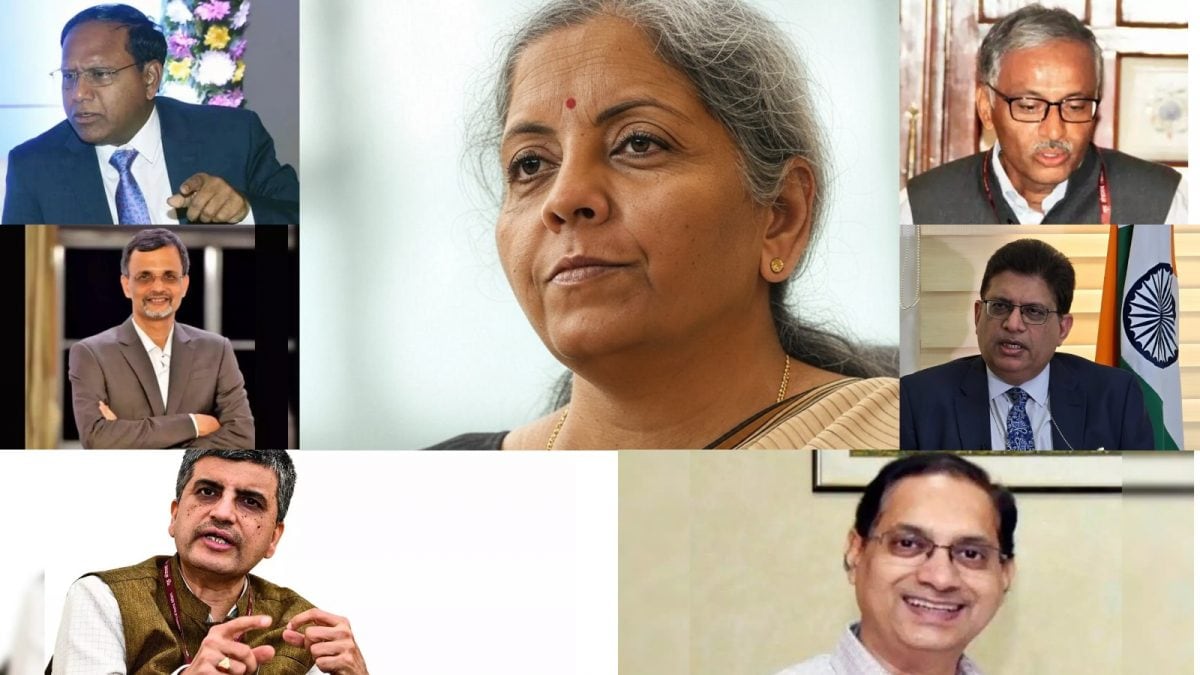 |
|
The upcoming Union Budget 2025-26, to be presented by Finance Minister Nirmala Sitharaman on February 1st, is shaping up to be a crucial moment for India's economy. The budget's preparation has been overseen by a core team of experienced bureaucrats and advisors, each carrying significant responsibilities and facing unique challenges in navigating the complexities of the current economic landscape. The ‘halwa ceremony,’ a traditional event marking the completion of the budget preparation process, underscores the significance and secrecy surrounding this annual event.
Tuhin Kanta Pandey, the Finance and Revenue Secretary, holds a pivotal role in this process. An IAS officer from the 1987 Odisha cadre, Pandey is tasked with the critical balancing act of revenue mobilization and managing expectations around tax concessions. His appointment shortly before the budget's presentation adds another layer of complexity, as he simultaneously oversees the significant overhaul of the income-tax law, which is anticipated to be introduced during the upcoming budget session. This reform is expected to have profound impacts on individuals and businesses across the country, requiring meticulous planning and execution to minimize disruption and maximize effectiveness. The pressure on Pandey is immense, requiring political acumen and deep understanding of the Indian tax system to achieve a successful outcome.
Ajay Seth, Secretary of the Department of Economic Affairs, plays a crucial role in shaping the macroeconomic framework of the budget. A 1987 batch Karnataka cadre IAS officer, Seth leads the department responsible for preparing the final budget documents and ensuring macroeconomic stability. His task is particularly challenging this year, demanding a delicate balance between fostering economic growth and achieving fiscal consolidation. Calls for a consumption stimulus are increasing, adding pressure to find the optimal path to rejuvenate the economy without jeopardizing long-term fiscal sustainability. Seth's decisions will be heavily scrutinized by economists, businesses, and the public alike, given their potential impact on jobs, investments, and the overall economic climate.
V. Anantha Nageswaran, the Chief Economic Adviser, brings academic expertise and economic insights to the budget process. An alumnus of IIM-Ahmedabad and holder of a doctoral degree from the University of Massachusetts, Nageswaran, who previously served as a part-time member of the Economic Advisory Council to the Prime Minister, contributes significantly to the Economic Survey, a critical document that provides context and analysis for the budget. The Economic Survey will likely emphasize reforms and deregulation measures aimed at boosting economic growth. Given the potential for increased global uncertainty and deglobalization, the Survey's recommendations and the subsequent budget will face immense scrutiny in their ability to navigate the complexities of the international economic stage and ensure India's continued growth and prosperity.
Manoj Govil, Secretary of the Department of Expenditure, has a significant role in optimizing government spending. A 1991 batch IAS officer from the Madhya Pradesh cadre, Govil previously served as the Secretary of the Ministry of Corporate Affairs. His responsibilities include rationalizing subsidies and centrally sponsored schemes, a crucial task given the need for efficient resource allocation and the government's commitment to fiscal responsibility. Improving the quality of government spending is a core objective, focusing on ensuring that funds are utilized effectively and transparently to achieve maximum impact and value for taxpayers' money. This requires careful analysis and prioritization, balancing competing demands and striving for optimal outcomes.
M Nagaraju, Secretary of the Department of Financial Services, addresses the crucial aspects of India's financial sector. A 1993 batch Tripura cadre IAS officer, Nagaraju joined the Department of Financial Services (DFS) after his service as Additional Secretary of Coal. His responsibilities cover ensuring adequate credit flow to support economic activity, promoting efficient deposit mobilization, regulating the rapidly expanding fintech sector, boosting insurance coverage to protect individuals and businesses against financial risks, and enhancing digital interfaces to facilitate financial transactions and inclusion. His efforts will contribute greatly to the financial health and stability of the nation.
Arunish Chawla, Secretary of the Department of Investment and Public Asset Management (DIPAM) and the Department of Public Enterprises (DPE), focuses on asset monetization and divestment. A 1992 batch IAS officer from Bihar, Chawla's previous experience in the pharmaceuticals department provides a unique perspective on managing large-scale projects. His role centers on accelerating divestment of public assets, a key strategy to improve government finances and provide private sector participation in crucial industries. The strategic sale of IDBI Bank and the unlocking of value from non-core assets of state-run enterprises are major initiatives under his purview. Success in these areas will be crucial for achieving the budget's fiscal targets and boosting investor confidence.
Source: Budget 2025: From Tuhin Kanta Pandey To Ajay Seth, Meet FM Sitharaman's Core Team
